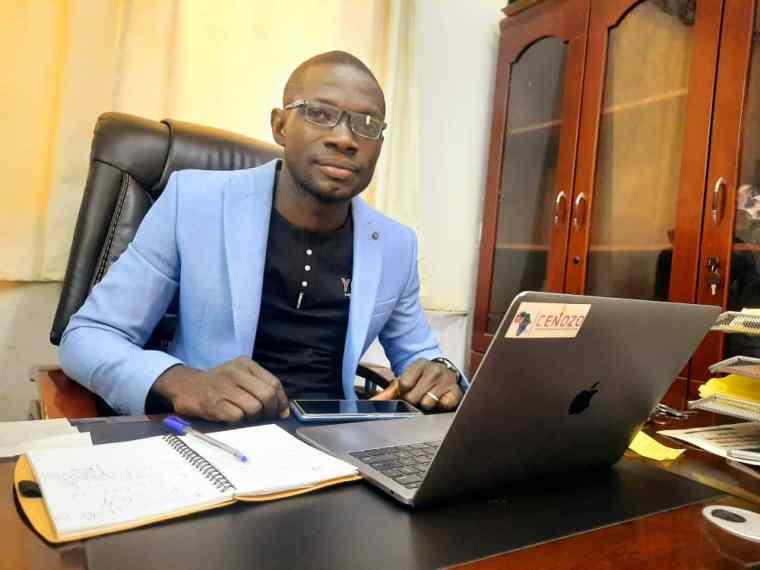The murder of Spanish reporters David Beriain and Roberto Fraile by unidentified attackers last week in eastern Burkina Faso was a tragic example of the dangerous working conditions for journalists in the country, where the government has struggled to contain a rise in militant activity in recent years.
Beriain and Fraile were kidnapped along with Rory Young, an Irish conservation worker, from an anti-poaching convoy on April 26; the three were reported dead the next day by officials and media outlets; a Burkinabè soldier also went missing. The Associated Press reported that an audio recording of someone purporting to be a member of the jihadist group Jama’at Nusrat al Islam wal Muslimeen (JNIM) claimed responsibility for killing “three white people.”
In 2019, Burkina Faso passed amendments to the penal code that restrict reporting on militant activity. Journalists who disseminate “false news” that undermines public order or the conduct of security forces, or publish reports that “demoralize” the security forces, may face up to 10 years in prison and a fine of up to 10 million Central African francs ($17,330), as CPJ has documented.
Following the April 26 attack, CPJ spoke to Arnaud Ouédraogo, coordinator of the Norbert Zongo Cell for Investigative Journalism in West Africa (CENOZO). Based in Burkina Faso’s capital, Ouagadougou, CENOZO provides funding and support for journalistic investigations into corruption, organized crime, poor governance, human rights violations, and the environment across West Africa. The interview, conducted via messaging app, has been edited for length and clarity.
What are the main security challenges for journalists working in Burkina Faso and how do these differ in various parts of the country?
Press freedom in Burkina Faso has been put to the test in recent years, in particular because of the rise in terrorism. Coverage of terrorism is becoming increasingly difficult for Burkinabè journalists, as the country’s penal code has been revised and requires journalists to stick to the government’s official versions of the attacks, something that inevitably leads to self-censorship. Geographically, some localities in the country have become virtually inaccessible due to insecurity. As a result, journalists face enormous difficulties in dealing with stories linked to internally displaced people and the lives of populations affected by terrorism. Reports from so-called “red zones” [areas Ouédraogo said are recognized as dangerous by Burkina Faso and other governments] are increasingly rare. It is virtually impossible for a journalist to travel to the east of the country for reports or investigations on simple, everyday issues.
How do journalists work in the eastern area of the country where David Beriain and Roberto Fraile were killed?
Personally, I have not been to this part of the country for several years. But my colleagues stay there, and according to them being from the locality can sometimes help, especially when you speak the language and master the local geo-socio-politics. It is especially recommended to be discreetly accompanied by members of the defense and security forces. But for that you have to make a prior request, and this is not ideal for journalists who prefer the confidentiality of their work.
What are the major challenges for CENOZO as an organization based in Burkina Faso that works on collaborations across the region?
For CENOZO, the main challenge is to be able to rescue journalists in danger or in the process of being prosecuted. In recent years many journalists have been prosecuted in efforts to discredit them. We have also seen several other attacks. In January 2019, for example, the Ghanaian journalist Ahmed Hussein [-Suale Divela] was assassinated following his participation in a very sensitive investigation. All these facts show that West Africa is becoming increasingly dangerous for a certain category of journalists, those who want to hunt down corruption, crime, and impunity. We are working to create an environment conducive to the practice of true journalism and freedom of the press.
How did the 2019 amendments to the penal code affect press freedom in Burkina Faso?
These provisions limit the action of journalists to cover news on terrorism. For example, the section [312-16] that requires the [government] “authorization” of information [from the scene of a terrorist attack] before being published. For an investigative journalist, if the data at their disposal is different from what the government publishes, they risk jail.
What actions would you like to see from the government to improve the safety of journalists and freedom of the press in Burkina Faso?
The best thing to do is to secure the entire territory. But that seems impossible given the current state of affairs. Our wish is that the penal code be reformed so that journalists can be allowed to cover all security topics. Our wish is that the government make strong commitments to guarantee freedom of movement and of the press, because information is a public good, a right for all.
[Editor’s note: CPJ sent questions to the publicly listed email for Burkina Faso’s government information service, but did not receive an immediate response.]
